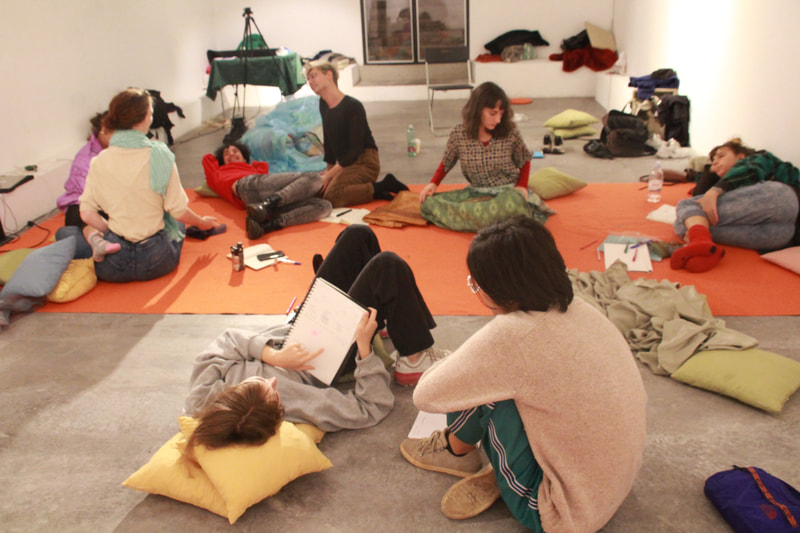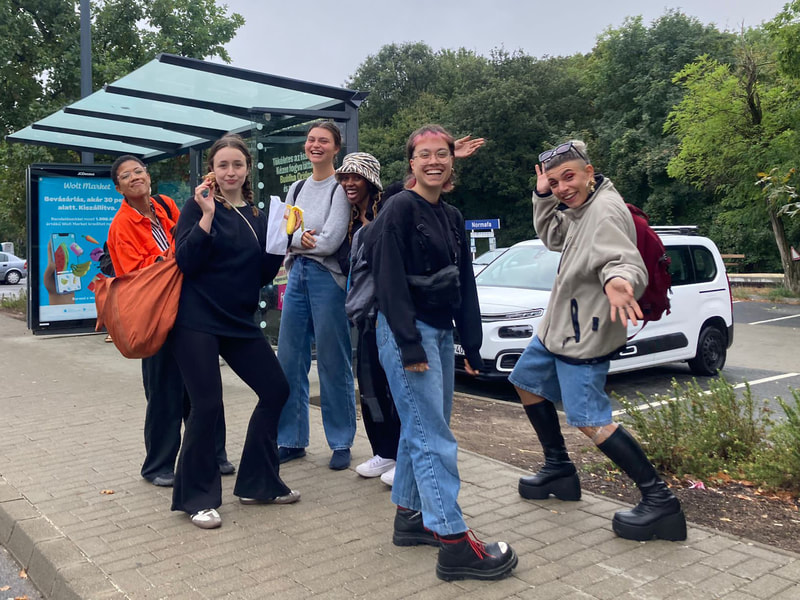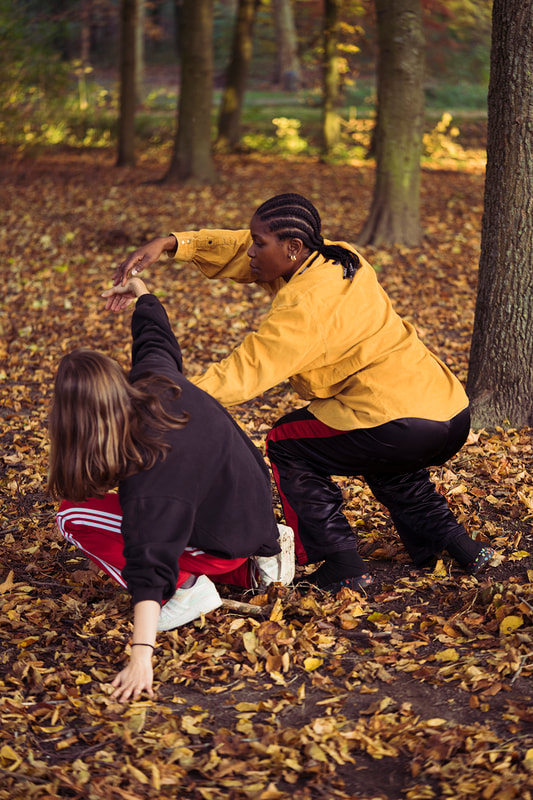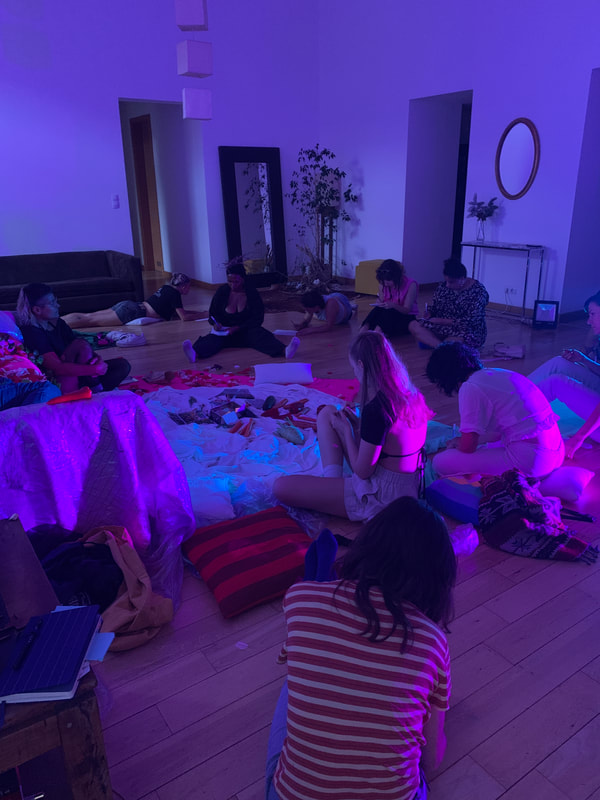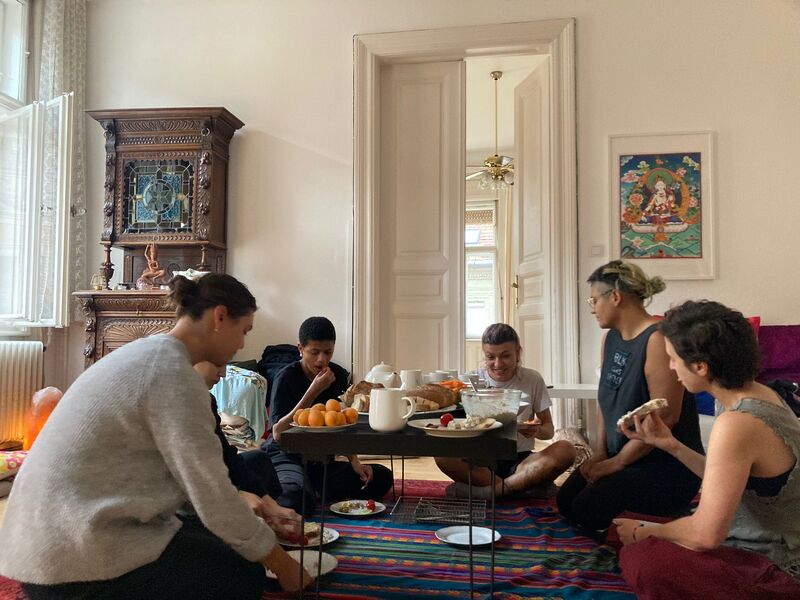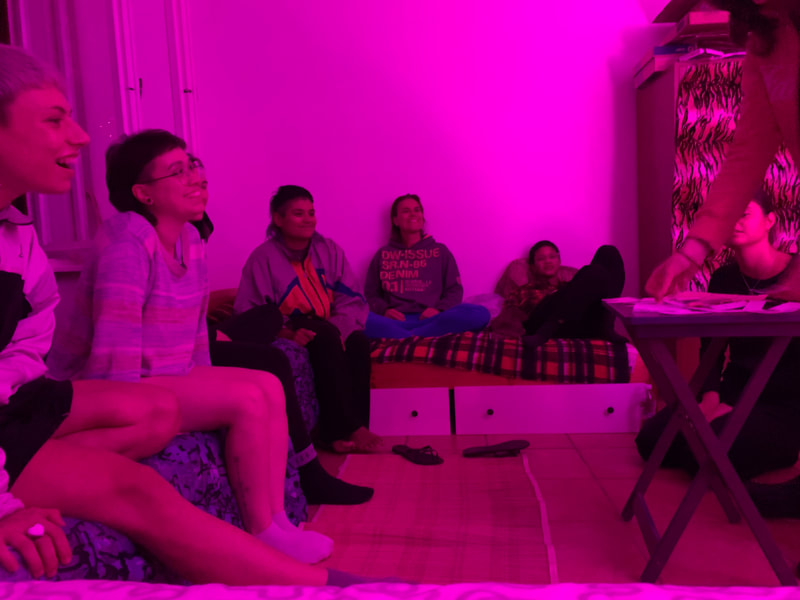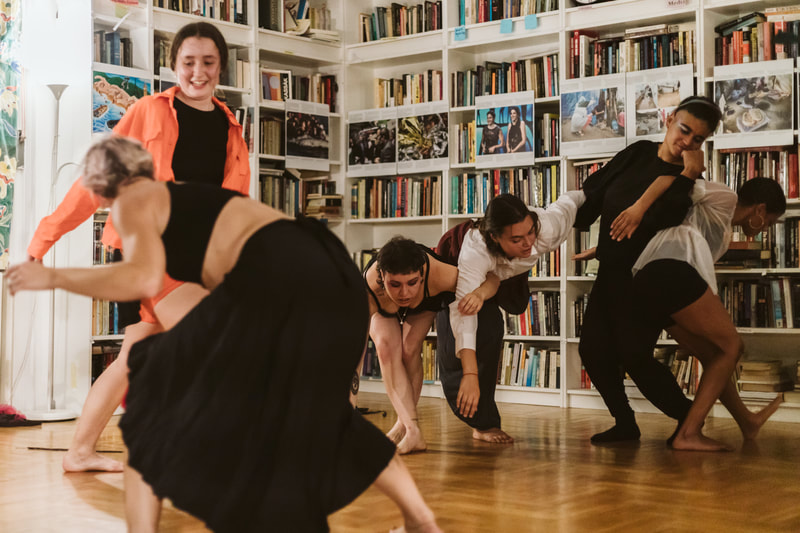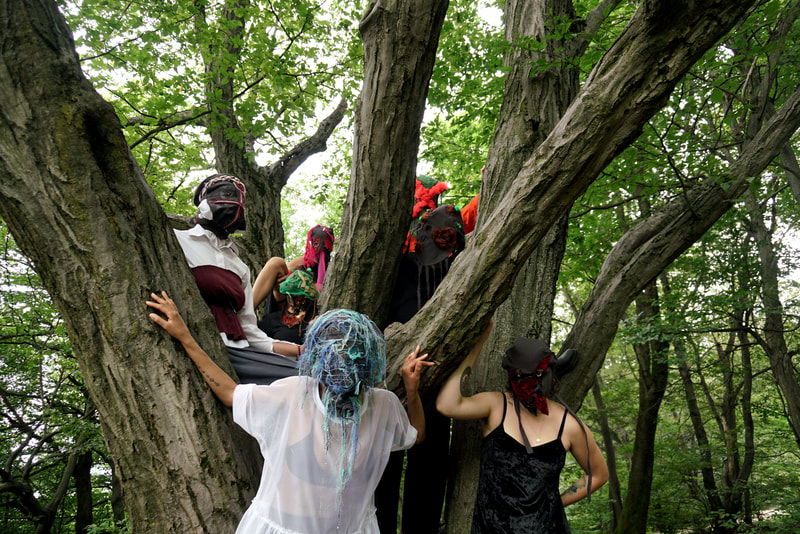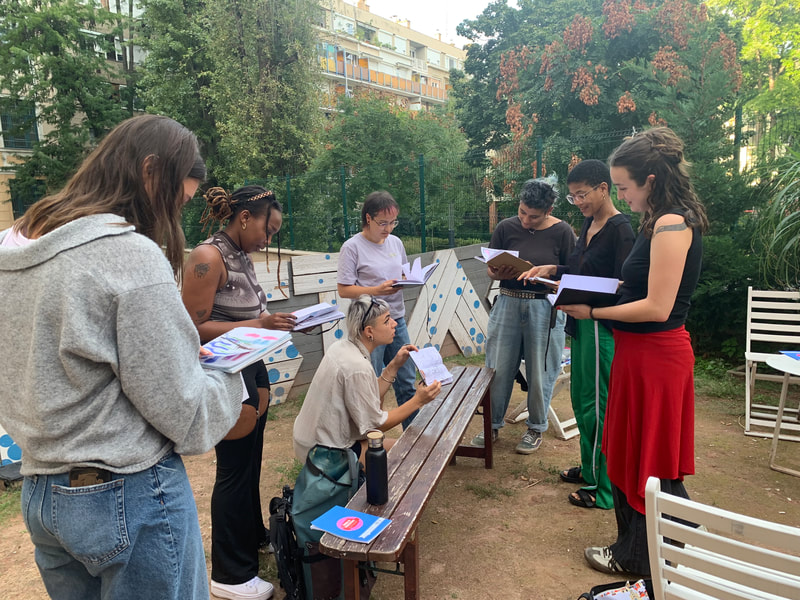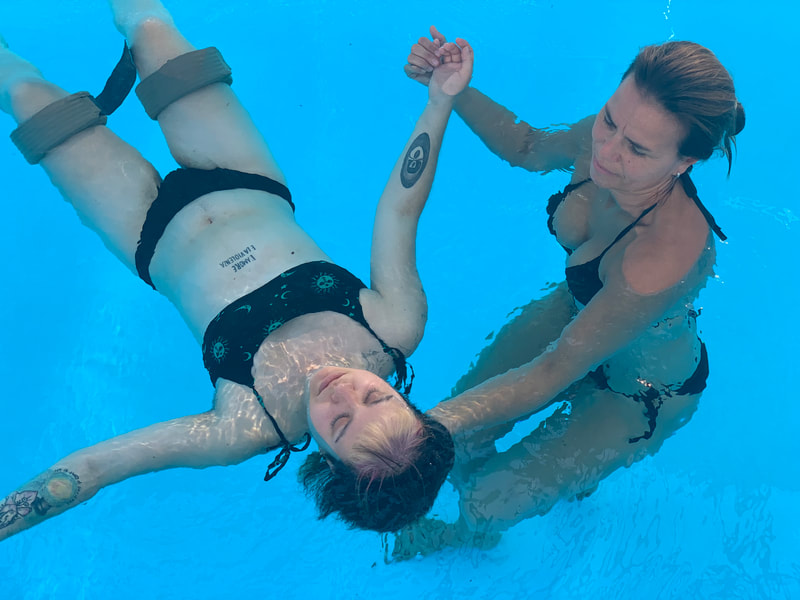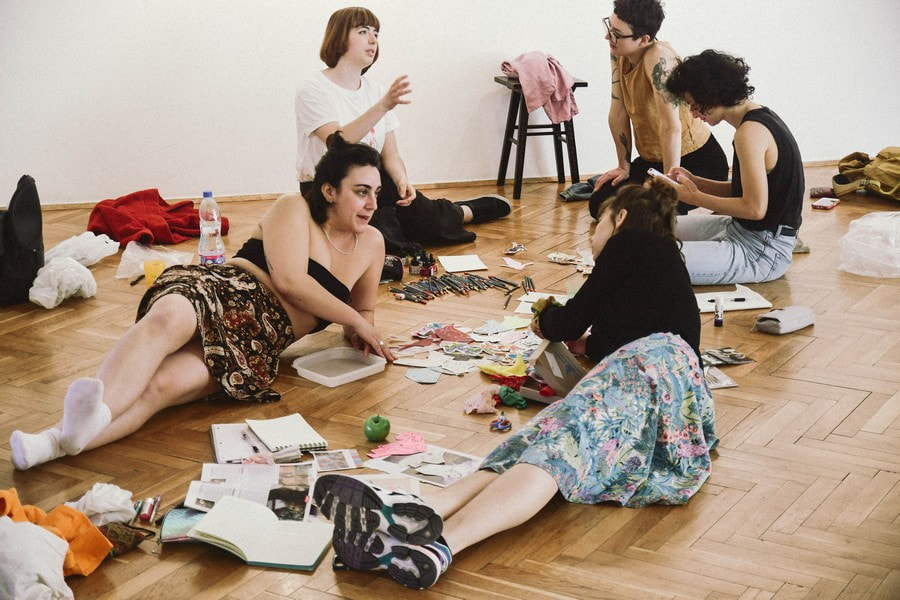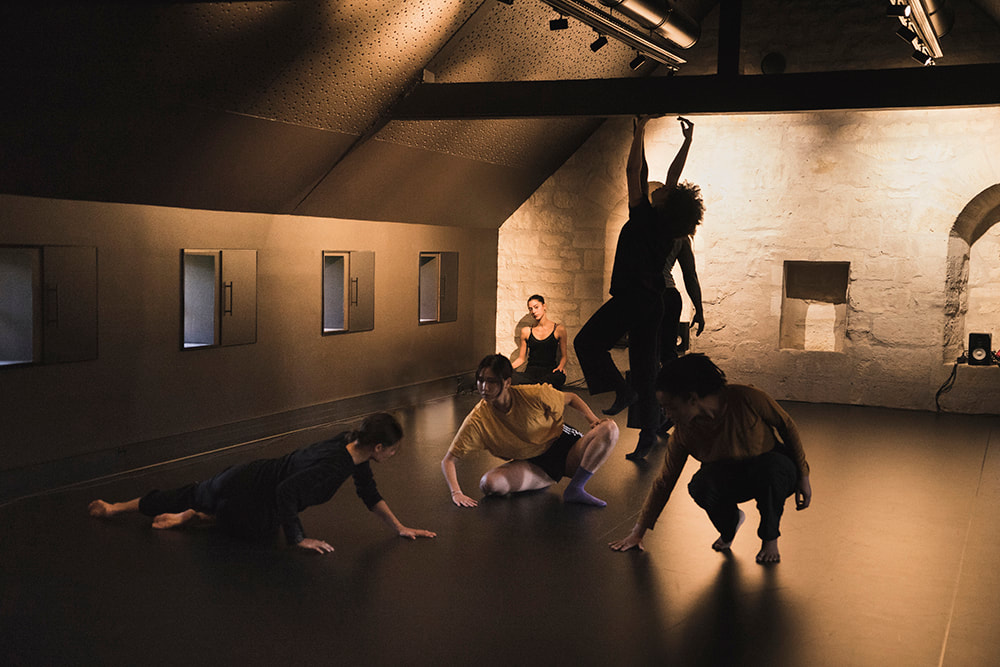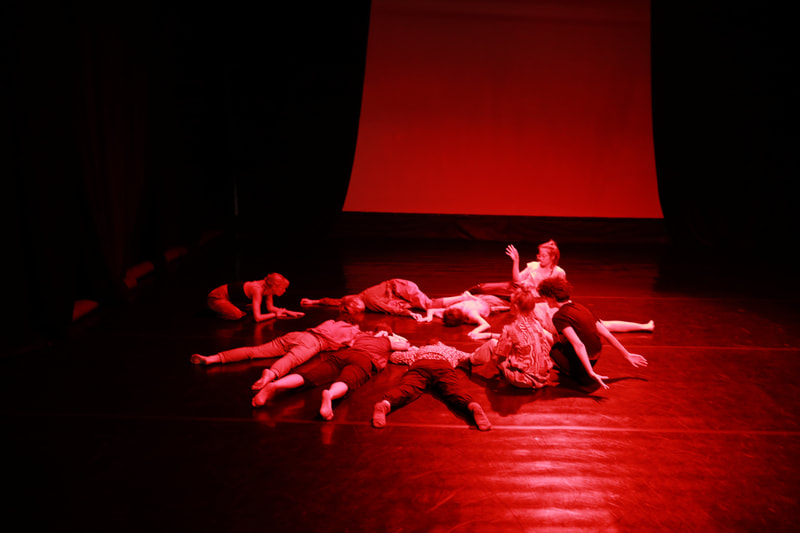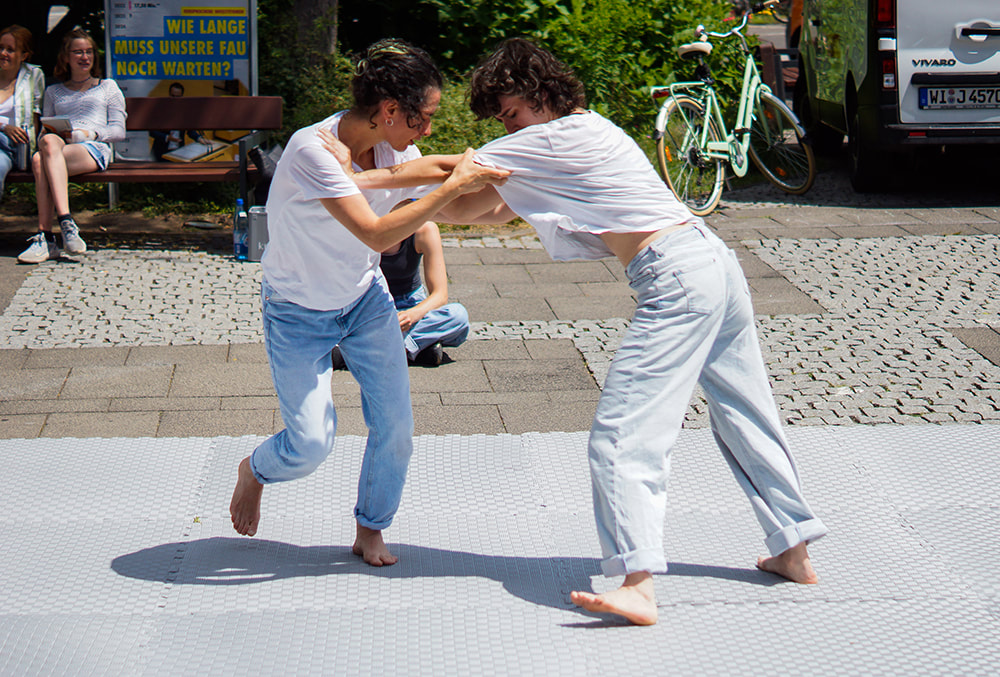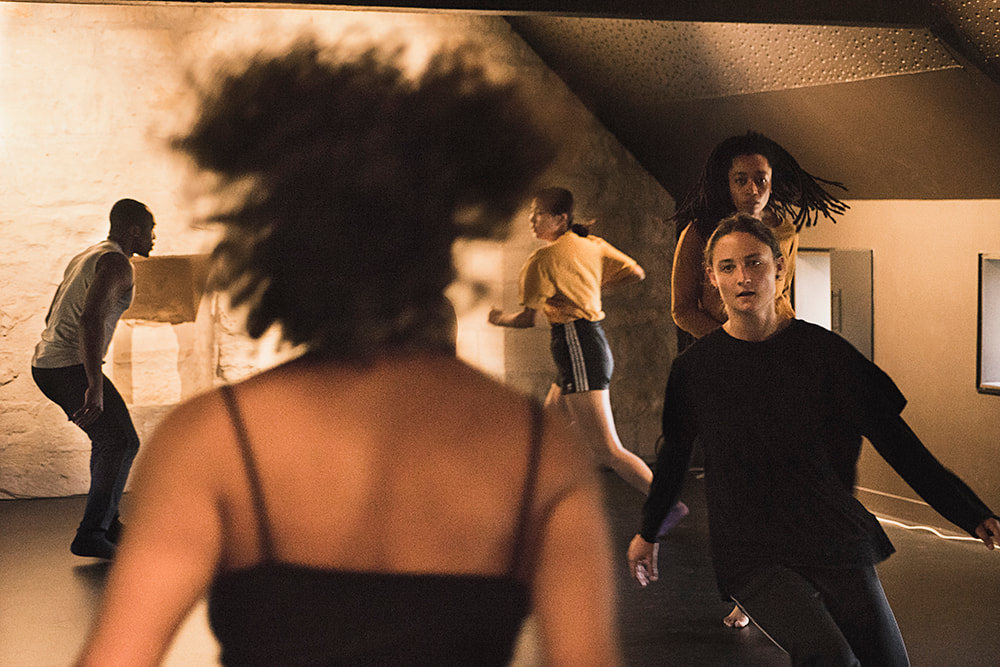The School of Disobedience is looking for new encounters, new "unlearning facilitators" who want to run a non-canonical, radical, experimental and critical workshop for our students.
details
- Length of your workshop:
- Nb of hours / day:
- Period:
- Venue:
- Nb of students:
- Language of your workshop:
- You can apply in 6 categories:
1. Theory
(Ex. critical pedagogy, sociology, psychology, geopolitics, dramaturgy...)
You can choose to do a workshop on a short general introduction to a field of study (e.g. philosophy, cultural anthropology...) or you can be more specific and focus on your personal research, either on art or on society from a critical perspective, challenging power dynamics, hegemonic classes, normative behaviours and dominant ideologies.
2. Technique
(Ex. Hungarian folk, roma dances, twerk, krump, k-pop, hip-hop, butoh, kathak, capoeira, kickboxing, tai chi...)
We are looking for dance techniques, movement practices and styles outside the Western canon (street dance, traditional dance, folk dance, internet dance, pop culture, sport...). When thinking about the length of your workshop, please make sure that you include time to share with the students the historical, cultural and socio-political background of the dance you want to teach them. We are also interested in the relationship between the dance you want to teach and your own cultural background.
3. Practice
(Ex. music/sound, creative writing, slam, poetry, dj, mixing, choral, voice, puppet theater...)
You can choose to run a workshop linked to a performing art form (dance, music, theatre, spoken word / lecture, dramaturgy, creative writing, puppetry, performance art...), body practice, for example.
4. Creation "residency" / Project
(Ex. research, creation, composition, repertoire...)
This category is specifically for makers/choreographers/composers who have a creative project in mind and would like to test their ideas, develop their research and progress their creation with our students. Please note that the idea is not to choreograph a piece for our students with a public performance at the end, but to work on your own project in collaboration with our students: take the time to try things out, hold rehearsals, run a thematic laboratory for research and experimentation to gain new insights and perspectives for your piece. Think of this category as a 'residency' where you work with our students on your project, rather than a workshop where you teach them.
5. Wellbeing
(Ex. aromatherapy, yoga, relaxation, massage, reflexology, naturopathy...)
Your workshop will be seen as a way of learning to accept and appreciate our bodies, encouraging self-care and self-love, through a healing technique, relaxation technique, manual technique, ritual or care practice, any kind of therapeutic approach.
6. Community
(Ex. tea ceremony, Indian cooking, rainmaking ritual, excursion, hiking, collaborative & co-creating tools, community building & organizing practices...)
Your workshop will be seen as a 'call to gather' for friendship, trust and togetherness. It's about creating safe and generous spaces that go beyond relational aesthetics to include the production of collective knowledge and the sharing of personal experiences, skills, tools and processes.
- We are very interested in workshops that are:
- clearly localized and ultra specific (ex. North Albanian folk dances, The guerrilla legacy of the Cuban revolution...) ;
- linked to performance, performing arts, community arts, political activism or critical theories ;
- part of your own cultural background (ex. "The Role of Women in the Italian Mafia" led by a person from Italy...) ;
- radical, outsider, marginal, experimental, courageous, unusual, unconventional, specific (ex. "The history of street gangs in the United States"...) ;
- questioning socio-political contexts, inequalities, power dynamics, social justice, hegemonic class, normative behaviors, dominant ideologies (ex. "The power of krump dancing to transform youth violence"...).
- We are less interested in workshops that are:
- not contextualized, and don't show a clear affiliation with any socio-political question (ex. "Journey of self-discovery"...) ;
- part of the western canonical artistic heritage (classical ballet, Dunham, Graham, Horton, Limon, Cunningham techniques...) without questioning them ;
- following the classic lecture structure, where teachers speak, students listen ;
- promoting a dogmatic, religious, spiritual, political leaning in particular.
IF YOU'RE NOT SURE IF YOUR PROPOSAL FITS INTO THIS FRAMEWORK, DON'T HESITATE TO ASK US BEFORE FILLING IN THIS FORM! WE DON'T WANT YOU TO WASTE YOUR TIME.
- You:
- Except for Category 4 (Creation "residency" / Project), please apply only if you have teaching experience, ideally in non-formal education or alternative pedagogies.
- We appreciate risk-takers, people who are not afraid of failing, who are willing to progress, to gain new experiences, and to step out of their comfort zone.
- If you are a fighter, a warrior, a punk, a dissident, a marginal, an outsider, you should definitely apply.
- We want to build a beautifully cross-cultural team, celebrating diversity in many forms (opinions, culture, race, age, sex, gender, disability...).
- You are very welcome if you don’t make any hierarchy between different types of knowledge, culture, approach, and don’t take any ideology, belief, aesthetic, artistic form or expression as the only best one. We are interested in people who prefer raising questions instead of giving answers. People who celebrate divergence and diversity in terms of thinking, arguing, believing as well. People who accept other point of views and opinions, and agree that it’s okay to disagree :)
- No age limit.
- This time we prefer solo applications, rather than proposals from duos / collectives.
- Conditions:
- Travel budget: covered up to 150€
- Salary: 300-600€ / week
- Application process:
- 2nd step in case of successful pre-selection: Online individual discussion with the program creator, Anna Ádám
- 3rd step in case of successful pre-selection: Students' final vote (A group of former students make the final selection through a simple voting system)
- Application deadline:
- More about us:
The “School of Disobedience” wants to be a new form of resistance, an anti-fast art, a collective healing garden, an ode for sincerity and courage, a passionate and radical platform for simple actions and small changes.
www.instagram.com/school_of_disobedience
https://www.schoolofdisobedience.org
- Important:
- Ask / feedback anything:
statement
In the “School of Disobedience”, you are encouraged to produce and share knowledge and tools to imagine the framework for a new economy of performing arts, in which the focus is switched from competition, career, fame, glory, and visibility to mutualisation, cooperation, collaboration, support, and care. A new world, where you don’t have to obey other's gaze, and judgments, handle the profession's pressure, and respond to gatekeeper's and standard-bearer's expectations. Putting the body, emotions, and critical theory on the same level, this new world is constructed beyond dualisms, where you constantly look for ambiguity, nuances and different shades of grey, celebrate in-betweens, wiggle rooms, doubt, and uncertainty, welcome diversity, applaud critical and divergent thinking, celebrate disagreement, dissent, resistance, and nonconformity. You unlearn western aesthetics, academic canons, beauty norms, manners and patterns in contemporary performance art, and relearn how to dare to behave differently, create unconventionally, think outside-of-the-box.
You are given a chance to build collectively a structured "creative healing space" to connect, collaborate, learn, and create with fellow members.
A space, where you can reflect on yourself as both an individual and member of a community.
Where you can find ways to support yourself and support others.
Where you can progress, move forwards, grow.
Gain confidence and strength from friendship, trust, and togetherness.
www.schoolofdisobedience.org
www.instagram.com/school_of_disobedience/
You are given a chance to build collectively a structured "creative healing space" to connect, collaborate, learn, and create with fellow members.
A space, where you can reflect on yourself as both an individual and member of a community.
Where you can find ways to support yourself and support others.
Where you can progress, move forwards, grow.
Gain confidence and strength from friendship, trust, and togetherness.
www.schoolofdisobedience.org
www.instagram.com/school_of_disobedience/
what is school?
For a school of tomorrow, we want to create an environment that is above all joyful and positive, where students are accepted, respected, challenged, where beyond constructive criticism they receive encouragement. Where students are neither put in boxes, nor judged. Where students can express themselves openly and simply. Where they are taught autonomy and independence without being abandoned, where they are accompanied and supported in their projects and in their dreams. Where students not only have the right to go against canons, traditions, conventions and norms, but where they are encouraged to do so. Where other forms of knowledge than theoretical are also considered and taught. Perception, empathy, emotions, intuitions.
Personal stories, life experiences.
In the school of tomorrow teachers do not tell students what to think, what to believe in, but open "doors" for them and offer them a multitude of possibilities, knowledge, tools, ways of doing and ways of seeing things. Teachers do not take advantage of the young age and the extreme sensitivity of the students to influence them, to transmit to them their personal convictions and struggles. Rather they teach them critical thinking, doubt and skepticism.
Open-mindedness, curiosity, empathy.
This school would then be human, warm, and generous.
This school is going to raise students, teach them to trust in themselves, believe in themselves, be themselves.
This school will make students become authentic, sincere and courageous.
That’s how they will face the world.
Personal stories, life experiences.
In the school of tomorrow teachers do not tell students what to think, what to believe in, but open "doors" for them and offer them a multitude of possibilities, knowledge, tools, ways of doing and ways of seeing things. Teachers do not take advantage of the young age and the extreme sensitivity of the students to influence them, to transmit to them their personal convictions and struggles. Rather they teach them critical thinking, doubt and skepticism.
Open-mindedness, curiosity, empathy.
This school would then be human, warm, and generous.
This school is going to raise students, teach them to trust in themselves, believe in themselves, be themselves.
This school will make students become authentic, sincere and courageous.
That’s how they will face the world.
